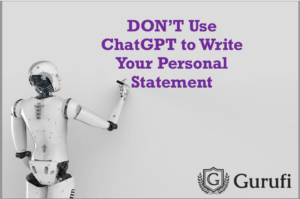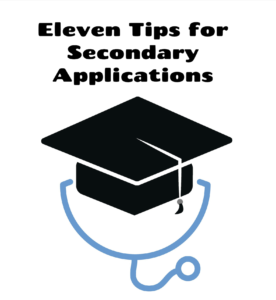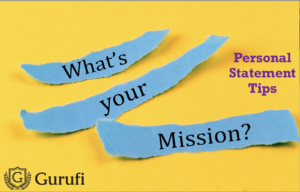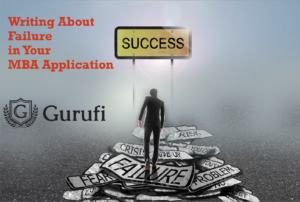
“As I looked into my grandma’s eyes, a single tear rolled down my cheek. I wished that I could save her life, but I felt so powerless. In that moment, I knew that I had to become a doctor so that I could save the lives of people like Grammy. I was only six years old, but that moment changed my life!”
Does your personal statement begin like this? In my 17 years of helping aspiring physicians earn admission into their dream medical school, I have seen some version of this essay hundreds of times. The dying grandma (or aunt, uncle, or grandpa…), the bedside revelation, the moment of irrevocable inspiration.
To be honest, I don’t doubt that such moments occur nor that they are deeply meaningful, but I do worry that after reading the 25th such story in a week, the Admissions Committee will find it hard to differentiate your application from the scores of other people whose essays feature a med school origin story that requires the sacrifice poor ol’Granny.
Of course, I’m being a bit facetious (okay, a LOT facetious), but depending on the year, I would guess that between 15% and 30% of medical school essays lean heavily on this trope. The personal statement is just too valuable to waste on a story that the AdCom has read hundreds of times before. Applicants have one opportunity to frame their experiences, accomplishments, and goals, and selecting a cliché subject for your personal statements instantly puts you in the JAG (“just another guy” / “just another gal”) pile. Although the applicant may consider these subjects to be significant, they are overused and do not help the candidate stand out.
Cliches are shallow and don’t give a complete picture of the applicant’s motives and objectives. An applicant’s experiences should be discussed in their personal statement, along with how those experiences affected their decision to pursue a career in medicine. It’s this second part that too often gets overlooked. Obviously, experiences and stories are central to your personal statement and application, BUT you need to build out these stories by linking them to bigger themes, making clear how and why they motivated you (as manifested in actions and decisions), and then projecting that motivation into a vision of the future you aspire to build. The superficial facts of an encounter are frequently highlighted in cliches, leaving out the applicant’s internal dialogue or feelings. The admissions committee could find it difficult to comprehend the applicant’s motivations for applying to medical school without this extra information.
Cliches can sometimes be deceptive and fail to accurately represent an applicant’s experiences. For instance, a candidate who writes about their time spent volunteering at a hospital can say that it confirmed their decision to pursue a career in medicine. The reader can’t know how profound an experience was, though, until the author describes it in detail and reflects on their feelings and ideas when they were having it. Cliches can thereby produce a fictitious narrative that is unrepresentative of the applicant’s experiences and motives. This is why I often urge applicants whose personal statements look flat or cliché to do a journaling or brainstorming exercise where they explore their feelings on the topic, how they worked through an experience or challenge, how it transformed them, and why it informs the kind of doctor they will become.
A useful tip for moving beyond cliché is to provide specifics and engage in deeper storytelling. For instance, many applicants will discuss their time doing volunteer work at a hospital. Does this mean you should avoid that experience altogether in your personal statement? NO! Instead, highlight specific instances and give depth, detail, and personality to that story. Describing your duties in a broad way won’t have nearly the impact that telling a single story of a meaningful interaction with a patient or a hard conversation with a doctor. Tell me about how you assisted a patient with navigating the healthcare system AND HOW THAT INFORMED YOUR VISION OF MEDICINE, or tell me why a particular medical procedure was exciting for you to witness.
You might also talk about how their experiences outside of medicine, such working in another industry or engaging in creative hobbies, have inspired their choice to become a doctor. These subjects offer a more thorough and distinctive perspective of the candidate, highlighting their personality and capacity for critical thought.
Candidates should also think back on their experiences, take into account the lessons they acquired from them, and assess how those experiences have affected their aspirations. Instead of just recounting an incident, candidates should discuss how it affected them academically and emotionally and motivated them to seek a career in medicine. A candidate who had a personal health crisis, for instance, may talk about how that event motivated them to support others or engage in relevant research.
When talking with a colleague a few years back, we joked that April and May were “grandma culling season.” Beyond this dark joke, there is a deeper bit of actionable advice for you: cliches lack depth and complexity, can be deceptive, and fail to exhibit an applicant’s originality and critical thinking abilities. Candidates can write a personal statement that highlights their abilities and potential as healthcare professionals by emphasizing their unique experiences and thinking back on the lessons gained and how they have affected their aspirations.
A personal statement gives you 5300 characters to make your case, and it’s often the biggest differentiator between acceptance and denial. Therefore, it’s imperative for candidates to approach this crucial part of the application process with imagination and consideration.
For more help with your personal statement, check us out at Gurufi.com. Our personal statement editors and consultants have decades of experience helping clients get into top Masters and Ph.D. programs in STEM, humanities, fine arts, and social sciences. Our specialty is helping you craft compelling personal statements that move the needle in your admissions process! For questions, shoot us an email at service@gurufi.com. Check us out on Facebook, Twitter, and LinkedIn.
#MCAT #medicalschool #medschool #amcas #amcaspersonalstatement #medstudent #medschoolife #premed #premedical #medschoolproblems #premedproblems #studentdoctor #whitecoat #residency #gettingintomedschool #medicalresearch #workandactivities #workandactivities







